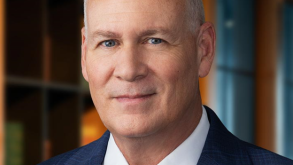How long have you been with Whole Foods Market and what is your background?
I have been at Whole Foods Market for five years now. Before that, I worked for Expedia as an in-house counsel. Before that I was in private practice in Houston.
What does your role entail on a daily basis?
In addition to being the in-house intellectual property counsel, I am in charge of the transactional relationships with Whole Foods Market outside of our exclusive brands and product vendor relationships. Our legal team is about 20.
For transactional matters, we have one attorney supporting our exclusive brand and private label team, one attorney supporting our vendor relationship and procurement team and I support the remaining transactional matters. In addition, because of my background, I handle all the IP, including litigation.
Do you have any sound or other nontraditional trademarks?
We do not. We don’t have any sound marks or any color marks, although I would probably secure a lifetime job if I could get the color green. We have a lot of image and word marks.
What is the one piece of advice that you have for outside counsel and the most important quality you look for in outside counsel?
They need to understand what I am asking for. I know it sounds simple, but a lot of outside counsel do not comprehend what's important for me. They comprehend what's important from a trademark law perspective.
I need responsiveness and specific content that I am asking for. I want you to tell me what I am asking for and not give me too much information.
I would tell them that relationships are the most important thing before billing. If you can build a solid relationship then the billing will sort itself out.
What are you looking forward to most at the INTA Annual Meeting this year? Are there specific sessions you're interested in? How long have you been attending the meeting?
I am most looking forward to meeting other in-house counsel. I meet outside counsel throughout the year but it's hard to sit down with other in-house counsel at large corporations and discuss the challenges we face.
I'm hoping to attend the Monday session on Social Media: Sidestepping Problems & Pitfalls and the Tuesday session called Retweet, Repost and Repin: How Do Brands Get Their Message Out and whose Content Is It Anyway. We have a large social media component. We have over 6 million Twitter followers, which places us second behind Google for the largest number of Twitter followers, among the Fortune 1000 corporations. We use social media to communicate our standards and marketing and to create a community and a connection with our shoppers.
How has the company's brand strategy changed throughout the years?
Our brand strategy has grown with the size of the company. Originally, the brand strategy was very regional and now we are going larger and more global. Our stores still reflect the community that they are in and we grow with the community.
What changes to the trademark system would you most welcome?
A little bit more certainty with respect to trademark litigation procedure would be nice.
In which countries do you protect your marks?
We protect out important marks worldwide. We have a presence in Canada, the UK and the U.S. so we prosecute them there. We occasionally use the Madrid Protocol, on a case-by-case basis.
What is the single biggest challenge you face in protecting your brand?
Asia is very challenging right now. We are focused on trying to protect our brand there, especially in China. In China, there are always some challenges with local government and due to the size of the country you have a lot of bad actors in China.
As a brand, Whole Foods is associated with ethical and egalitarian values. How do these values affect the way the company manages and enforces its trademark portfolio?
We are very sensitive to our customers. We are in a fortunate position in that most of the individual customers who are infringing are doing it out of a position of admiration and respect. So we tend to get a lot further with a polite request and an explanation of why we are asking them to change their behavior.
Brands often operate as a kind of mental shortcut for consumers. Whole Foods Market has a focus on small batch produce and individual producers. How does the company unite these diverse sources under one brand without diffusing the overall message of the brand?
Those small relationships build the brand. When people go into Whole Foods, they want to see the relationship to the small farmers and local growers. We have our private label and exclusive brands but we feel that the Whole Foods Market brand is an umbrella when it comes to all these relationships. We are very happy to see our partners grow.
Whole Foods Market is regarded by many as a luxury brand, but some of the values it encompasses, such as sustainability and egalitarianism, seem almost at odds with the exclusivity and flashiness consumers typically expect from traditional luxury brands. Is the definition of luxury changing?
We are not really a luxury brand. We are a best in class brand. I think a lot of people mistake the two. There are a lot of luxury products that are not best in class and a lot of best in class products that are not luxury products.
We strive to provide the best possible products and groceries, both organic and conventional; we can find in the marketplace and because of that I think our consumers feel very confident that they are getting good value.
Is the move towards organic, locally sourced food part the result of a generational shift in attitudes?
I think it's more that we are putting more value on what we want to put into our bodies. In the last 10 to 15 years, what we put into our bodies has become less of a convenience issue and more about values and quality. When they come into Whole Foods, people know that they are getting that.
What is there to do and see in Dallas?
The Dallas Cowboys stadium is a huge, beautiful architectural masterpiece. For food, try The Original Sonny Bryan's Smokehouse BBQ off Inwood Road. It's small and it's a little run down but it has some of the best barbeque around. The North Park Mall is wonderful for shopping. For nightlife, try Uptown and for sightseeing, the Nasher Sculpture Center is beautiful. You could also go for a run off White Rock Lake, or the Katy Trail. If you have the time, go out to Fort Worth to watch the Cattle Drive and enjoy the Stockyards.









